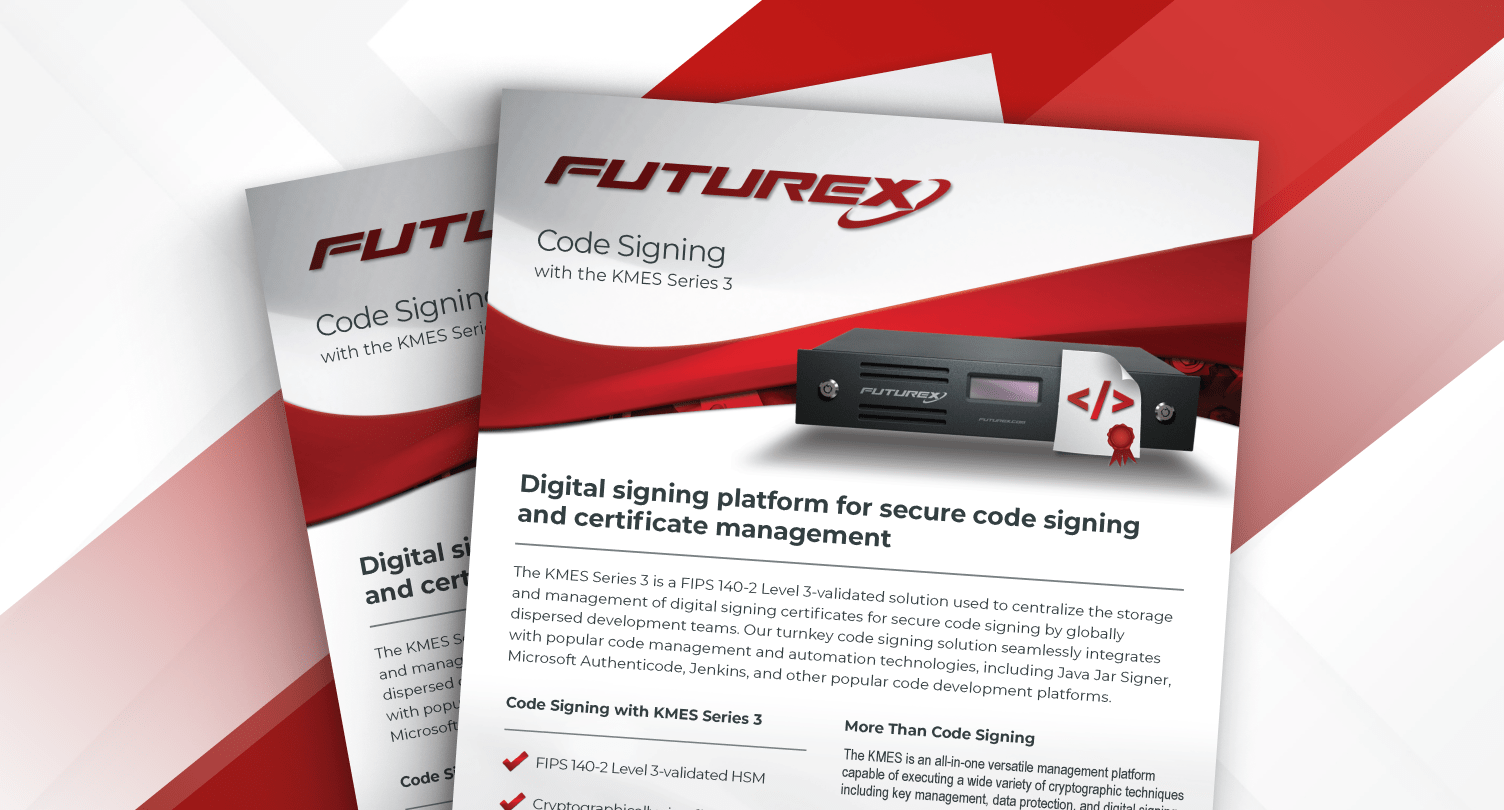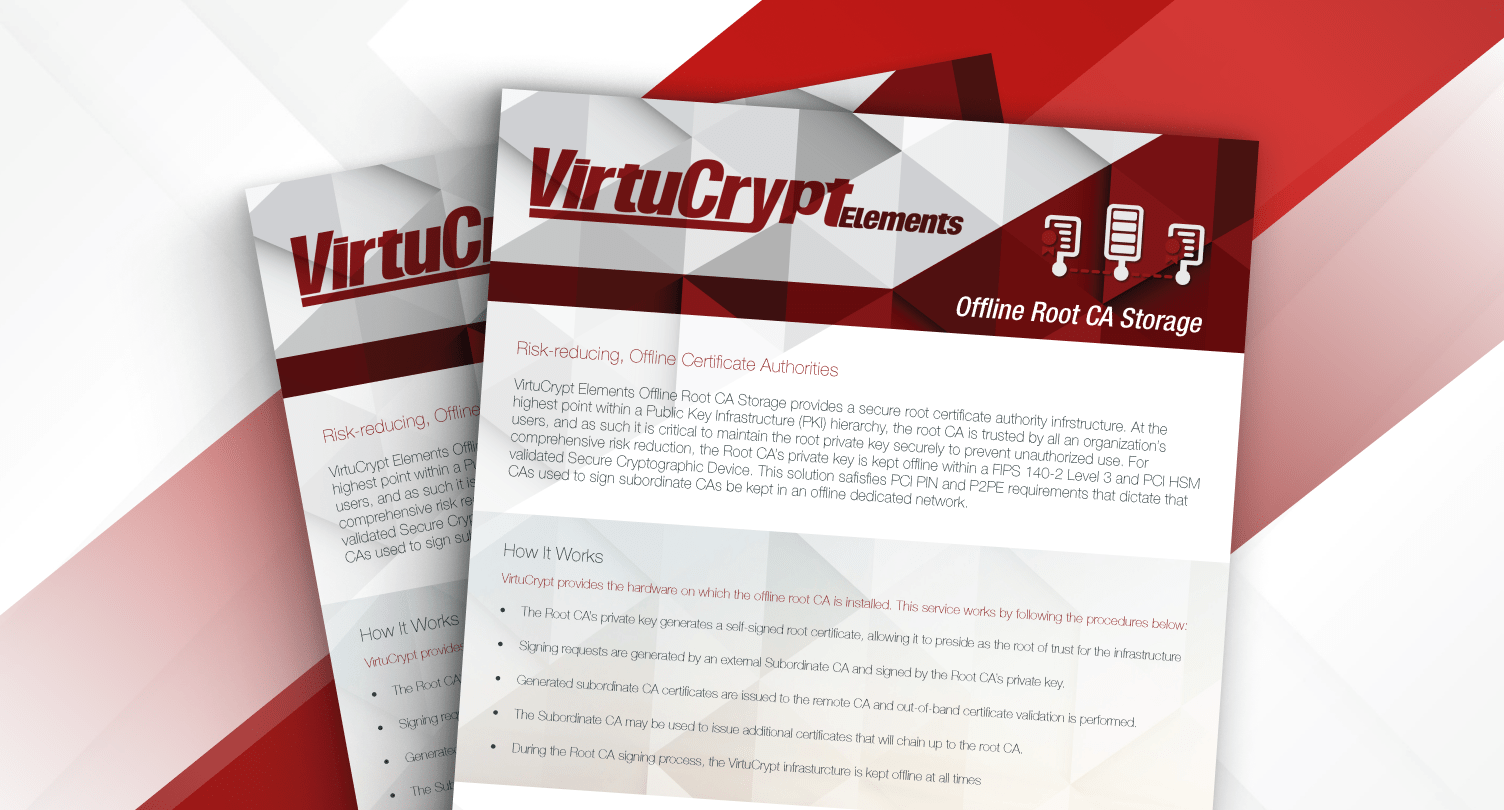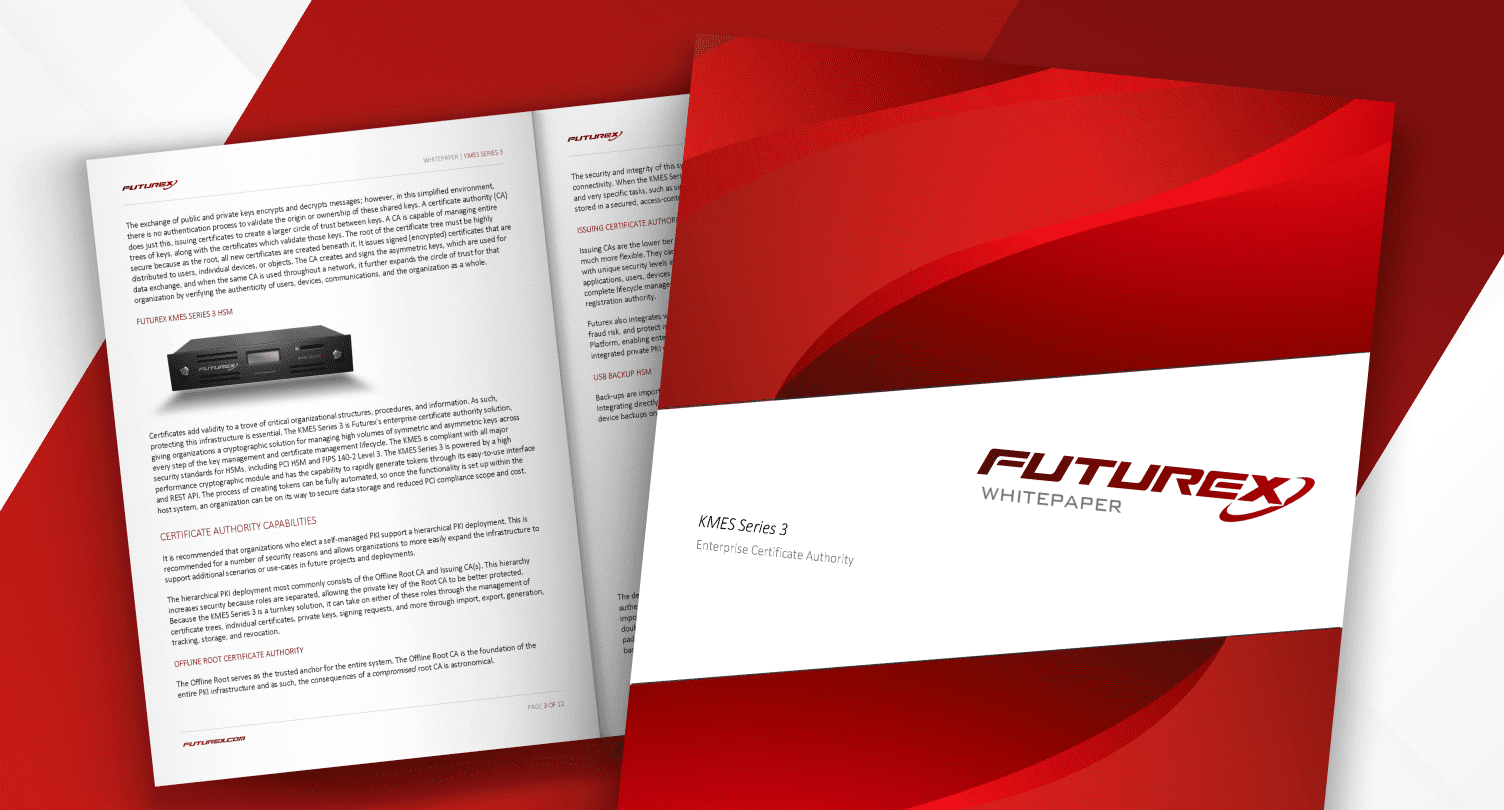5G Network Solutions
Connected vehicles must be protected from cyber threats. Regulations like the USDOT’s Automated Vehicles Comprehensive Plan were developed for this purpose.
Accelerate secure telecom connectivity in the 5G era with HSM-driven encryption that powers seamless, trusted communication.

A secure root of trust protects cryptographic infrastructure for telecommunications and 5G providers. However, the FCC-approved STIR/SHAKEN standards require lines of service to be authenticated with public-key encryption. Futurex provides market-leading HSMs for providers to establish a public key infrastructure (PKI) and a certificate authority (CA), forming the root of trust and complying with FCC-backed regulations at once. The Futurex telecom & 5G security solution suite empowers you to authenticate lines and prove that numbers have not been spoofed to safeguard your end users’ trust.
FIPS-validated HSMs establish offline root certificate authority (CA). CA generates asymmetric key pairs for public key infrastructure (PKI). Issuing CA and PKI handle digital signatures and authentication. Key management HSMs contain OCSP and CRL for certificate revocation.
To deal with the prevalence of robocalls and number spoofing, telecom providers must deploy public key cryptography to comply with the FCC-backed STIR/SHAKEN standards. Providers establish a CA, where private keys sign phone calls and public keys validate the signature. However, balancing security with performance can be a challenge: your infrastructure must be capable of handling high processing speeds to avoid compromising your service.
Futurex HSMs provide cryptographic solutions both on-premises and in the cloud. Manage key lifecycles, establish a PKI, and set up a CA to issue and manage digital certificates. Futurex HSMs are equipped with physical and logical controls to guard against both external and internal threats. The result is a highly available and scalable cryptographic infrastructure that can meet and surpass STIR/SHAKEN requirements, without creating security flaws or post-dial delays.
5G networks depend upon a secure root of trust and powerful processing ability. What’s more, the network security infrastructure must not be made obsolete by advances in quantum computing. And, while security is important, high performance is needed to deal with increased data transaction speeds.
Futurex provides FIPS 140-2 Level 3 validated key management servers with built-in HSMs to handle certificate authority (CA), key management, and encryption. Futurex devices can be deployed on-premises for hands-on security and control, or can be deployed in the cloud for nearly limitless scalability and processing power.
A set of FCC-backed industry standards which require calls to be digitally signed by the originating carrier. Calls must be validated by other carriers before reaching end users.
Certificates consist of public and private key pairs. The originating provider uses private keys to sign calls, and other providers use public keys to validate the originating provider's signature.
Connected vehicles must be protected from cyber threats. Regulations like the USDOT’s Automated Vehicles Comprehensive Plan were developed for this purpose.
A root of trust (RoT) is a cryptographic source guaranteed to be secure. The Futurex Root CA’s private key generates a self-signed root certificate to function as your enterprise’s RoT.
Futurex key management servers manage key lifecycles. They secure private keys, forming the basis for PKI and offline root CA. This enables device and code signing on an enterprise-class scale.
For over 40 years, Futurex has evolved new technology solutions to keep pace with the ever-changing telecommunications industry. Now, Futurex’s versatile technology offerings and flexible deployment options allow us to serve the encryption needs of carriers offering 5G services, no matter the size and scope.
Whether you need to establish inter-agency trust between issuing CAs, strengthen 5G network security, or streamline your cryptographic management process, Futurex delivers on-premises, cloud-based, and hybrid model 5G encryption solutions to secure 5G network traffic and safeguard end user trust.
Using Futurex enterprise key management servers, organizations can establish a PKI to secure private keys and create an issuing certificate authority (CA). The offline root certificate establishes a working certificate that can digitally sign calls, devices, and code by using asymmetric key pairs.
It can authenticate calls to prevent unauthorized spoofed calls, spam, and robocalls. Like the PKI, having a CA in your security infrastructure is essential to protecting critical infrastructure, maintaining end-user trust, and mitigating cybersecurity vulnerabilities.
To ensure the integrity and security of an organization’s public key infrastructure (PKI), you have to secure an offline root CA. PKI has become crucial in the modern age of networked devices, such as mobile phones or IoT sensors. Managing an organization’s security assets all but requires it. The offline root CA is the trust anchor for the entire PKI: it essentially vouches for the authenticity of the certificates that hierarchically descend from it.
Futurex provides an all-in-one solution for establishing a CA and PKI in the KMES Series 3. It features a built-in HSM, flexible integration (such as with Active Directory), and full key and certificate lifecycle management of the PKI. A device so robust and efficient is rare in the marketplace today.
Threats
Technology solution description
The configuration process for creating an offline root CA is simple using the KMES Series 3:
Access the device, kept offline and never connected to a network, through a console to perform any cryptographic functions on the root CA.
Planning certificate revocation across multiple trusted certificate authorities (CA) is an important component of a secure public key infrastructure. You need to revoke old certificates to mitigate cyber vulnerabilities and prevent application downtime.
Transport layer security (TLS) offers two cryptographic protocols for systems to revoke certificates:
The OCSP and CRL protocols are as important as the issuing CA.
Futurex offers a hardened certificate validation solution with seamless system integration. It acts as an OCSP server and a CRL distribution point. It comes with FIPS 140-2 Level 3 validated HSM storage and includes automated CRL distribution and OCSP validation. It’s also easily configurable within the KMES Series 3, requiring only a few steps for either OCSP or CRL setup.
The Futurex technology offerings strike the perfect balance between performance and security when planning certificate revocation. Plus, with our cloud-based offerings through VirtuCrypt, organizations can eliminate hardware, maintenance, and management costs.
Protect and issuing CA by using hardware-based key management solutions with PKI functionality and third-party integration.
Automate certificate management through HSMs with your CRLs and OCSP in mind through custom configuration.

Take advantage of an all-in-one solution to guarantee the integrity of your PKI with a secure, offline root CA
"When we have the right partners, we can help our customers overcome their challenges. ...which is why we are working with AWS and Futurex. They help us provide the innovative, scalable, reliable, and compliant solutions our customers are seeking day after day."
- Thiago Lopes, Information Security Manager
Pismo



Futurex provides HSMs and key management servers that handle encryption, bring-your-own-key (BYOK). Futurex helps enterprise organizations deploy a modern cloud data security environment that complies with the latest standards and regulations.

